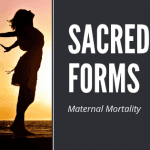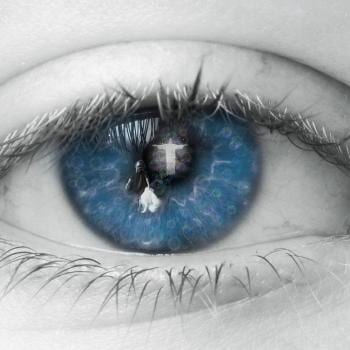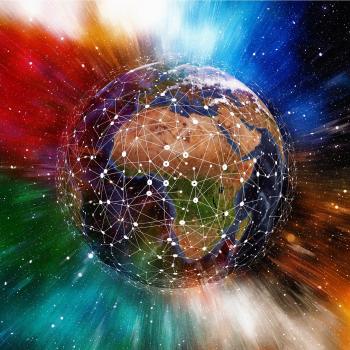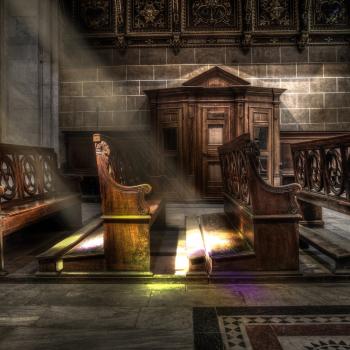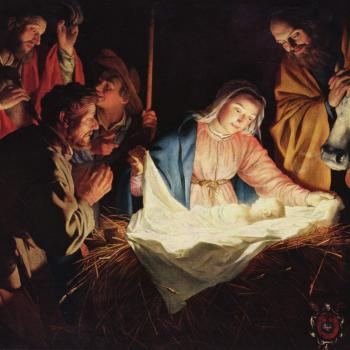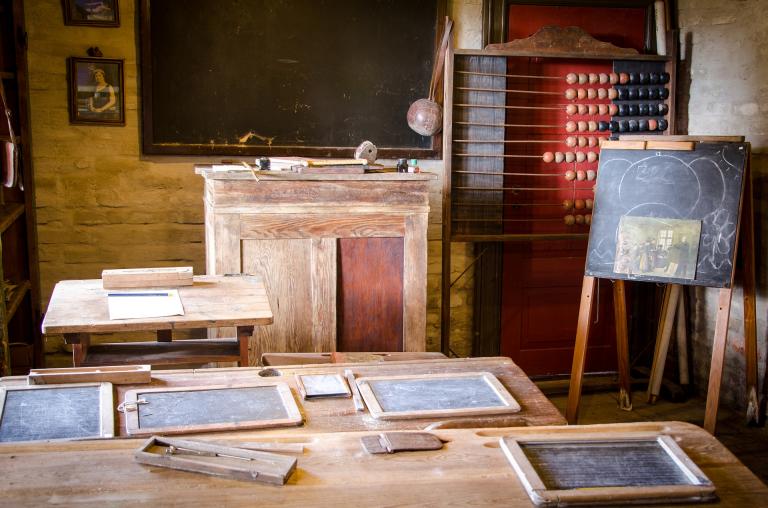
I’ve been waiting to comment on the incident that took place last week between a group of young men from Covington Catholic High School, several men identified as Black Hebrew Israelites, and an elder from the Omaha tribe.
I don’t like to make a statement unless I’ve got something to add to the existing conversation. It’s not exactly useful if I post the equivalent of, “Yeah, what those other thousand people just said!”
I believe I do have some insight based on my personal experiences.
I’m not interested in giving these young men an internet beatdown. This isn’t about one group of young men, but what this incident can teach us about our country.
Before we get into this, a few disclaimers:
I’ve voted Republican in almost every election since I’ve been old enough to vote, though I don’t feel any loyalty to either party.
I’m Catholic.
I’m white, and I’m writing from that perspective, with a white audience in mind as I wouldn’t presume to educate a person of color about racism.
Our Environments Shape Us
When I was in elementary school, I was usually in schools that were diverse. My 2nd grade school picture shows the class was about 1/3 Latinx, 1/3 Black, and 1/3 white. This was in the south, over 30 years ago, so obviously there were openly racist comments flying around the community. The point is I didn’t grow up in an all-white (or even nearly all-white) bubble. I’ve had many positive interactions with people of color.
Interacting with people from different ethnic backgrounds matters.
When I was in high school, my family moved to a small, rural town. We were only about an hour outside Harrison, Arkansas. If you’ve ever heard of Harrison, it was probably related to the KKK and the racist billboards in town (which have recently been taken down.)
A branch of the KKK is headquartered near Harrison, and if anyone thinks that didn’t leak over into my hometown, they’re being ridiculous. There were multiple white supremacist groups operating around my hometown in the 1990s (I know of at least two murders in the mid-1990s and early-2000s in the area that were tied to white supremacist groups), though I can’t speak to whether those groups are active there today or not.
In 1900, Harrison’s population was about 1,500 people. Of those, 115 people were Black. By 1910, the entire Black community was gone, having been violently driven out of their homes by their white neighbors. Until recently, Harrison was known as a “sundown town.”
“The rioters then swept through Harrison’s black neighborhood, tying men to trees and whipping them, burning several homes, and warning all African Americans to leave that night. Most fled without any belongings. Three or four wealthy white families sheltered servants who stayed on, but in 1909, another mob tried to lynch a black prisoner. Fearing for their lives, most remaining African Americans left. Harrison remained a sundown town at least until 2002.” —James Loewen, Sundown Towns a.k.a. Racial Cleansing, The Encyclopedia of Arkansas
Despite some recent efforts from community members to acknowledge the sins of the past and work to change the culture, the local communities have never recovered from the violence that took place over 100 years ago. The minority population that should be there isn’t present to the degree it would be if this racial cleansing had never happened.
As a result, children growing up in the area didn’t have opportunities to interact with many people of color. In my town, we had a few families with Asian and Latinx backgrounds, but I’m not aware of any Black families living there in the 1990s. (I don’t know why these groups were more offended by Black families than other minorities.)
I regularly heard the N-word used in conversations. A young man came to school dressed in KKK robes for Halloween. A year earlier, our school forced me to change out of a skirt deemed “inappropriate” (it wasn’t) but this young man was allowed to wear KKK robes the entire day without punishment.
In 1997, my youth group leaders heard DC Talk was giving a free concert in Little Rock. When you’re a 16-year-old evangelical in 1997, and you hear DC Talk is giving a free concert, you don’t ask any questions. You jump in a van and go.
And that’s how me and a bunch of kids from a town infested with racism accidentally joined 15,000 people at a Racial Reconciliation Rally commemorating the 40th anniversary of the desegregation of Little Rock’s Central High School.
Some of the kids in our group were noticeably uncomfortable, while those of us who had moved to town as older kids were just excited to see DC Talk. It took me a while to realize some of the kids in our group were intimidated by the crowd. It was a more diverse group of people than some of them had ever seen. For young adults who’d never even spoken to a Black person before, and had heard nothing but negative stereotypes about them, it may have been frightening.
We heard from several speakers that day, and I learned more about segregation while waiting for DC Talk to play than I ever learned in school. At one point, everyone in the amphitheater started shouting, “Never again!” I’d never felt so much emotion coming from a group of people, and I’ve never experienced anything like it since then.
We all prayed together for reconciliation, and we prayed to be forgiven for anything we’d done to promote racism. I actually felt a little defensive about that. I hadn’t segregated the schools. I hadn’t owned slaves. I didn’t hate Black people. I never used the N-word. I was one of the “good guys,” and I didn’t like the feeling of being lumped in with the “bad guys.”
When DC Talk started playing “Colored People,” I looked over and noticed some of the kids we’d brought were crying, but they wouldn’t tell me why.
That rally might have been the first time some of them saw a Black person as fully human instead of some “other” they didn’t have to think about unless they were thinking about them in a negative way.
Opportunity to Interact
When we deny our children a diverse environment, we’re helping to promote racism through unofficial segregation. One example of this unofficial segregation often happens within private schools.
Noah Berlatsky, whose son attends a private school that actively promotes anti-racism, explains it well:
“Sending kids to private school is an option you only have if you have a certain amount of money. In paying for him to go to that school, we were at least partially abetting a system that benefits more affluent people. And affluent people in the U.S. are often (though not always) white. We sent our son to a school that taught and encouraged anti-racism. But teaching people to be anti-racist doesn’t necessarily address the structure of racism itself. In fact, racist structures often determine who does and does not have access to these kinds of educational opportunities.”
When we send our children to an all-white or mostly white school, we not only help support white children receiving better educational opportunities than most children of color receive. We also deny our children opportunities to interact with people from other ethnic backgrounds. We rob them of the opportunity to build relationships with people who don’t experience life exactly like they do, which in turn stunts their ability to understand the world is bigger than the little ethnic, economic, and/or religious bubble they’ve been raised in. Understanding that not everyone shares your experiences is the first step in becoming an empathetic adult.
To be clear, I’m not trying to put the burden on children of color to educate their white peers. That’s not their job. What I’m saying is when you put children together these relationships happen organically. You get to know the little boy sitting at the desk next to you and you both realize you like the same TV show. You develop a friendship, and when something hurts your friend, you realize it hurts you too. You develop a deeper level of empathy than you could develop in an environment that didn’t require you to try to understand people who face challenges you’ll never have to face.
I’m not saying private schools are always bad. As always, there’s never a one-size-fits-all approach that can work for every single family. I’m saying, as parents, we need to carefully evaluate whether we’re doing more harm than good if we enroll our children in these schools. We may think we’re doing what’s best for our child, but in reality we’re hurting their empathetic development as well as slowing down the progress of fighting racism in our society. In some cases, private school is the least harmful option. In other cases, it can do more harm than good.
Lack of Education
When I was little, kids used to run around pretending to make an “Indian war cry.” I’m sure you know what I’m talking about. It didn’t occur to me, as a child, that it was racist. I didn’t know lands had been stolen from Indigenous peoples or that children had been forcibly taken from their families. I didn’t know about reservations.
Young people aren’t born knowing the ethnic tragedies that have taken place in our country. It’s our responsibility to teach them our history.
When I was younger, I thought I wasn’t responsible for racism because I’d never personally owned another human being. A lot of people think that. But we’re all responsible to one another and, frankly, prejudice still counts even when we aren’t burning crosses.
At one point, my family did own slaves. I’ve got the census records to prove it. My ancestors benefited from the oppression of other humans in a country where wealth is often passed down generationally. I’ve never seen any family money, but the fact that I exist at all could be tied back to slavery and the way my ancestors did prosper enough under that system to pass on their DNA.
Maybe there was a brilliant man or woman on my ancestor’s plantation who was denied an education. What good could they have done for our country if they hadn’t been prevented from reaching their full potential?
What opportunities have I had as a direct result of my ancestor’s actions? None of us are born into a vacuum. I was born into a culture that values me for my whiteness, even as it devalues me for my femaleness. That culture was shaped by the actions of my ancestors.
I’m not talking about guilt. I’m talking about recognizing we are all connected to one another. The actions I take today will ripple through time and shape the world our great-great-great grandchildren will live in. Time amplifies the right or wrong we choose today.
If we choose to do a better job of educating our children about our shared history, we could combat some of the entitled attitudes that do so much damage. We could start to shape the future into something Jesus would be on board with.
We have honest conversations, even when they’re painful or awkward.
My daughters know our ancestors owned slaves, and they know what that means. My family wasn’t sheltering workers who were happy to be there. They were exploiting human beings and denying them freedom. There’s no way to sugar coat that. It was evil.
One thing this recent incident has taught me is that I need to do a better job of educating my children about what happened (and is still happening) to Indigenous peoples. We’ve discussed it some, but my own sort of diversity desert has kept me a little too blind to those issues.
I’ve known people who have some Native American ancestry, but I don’t think I’ve ever had an opportunity to get to know a person who is actually a member of one of the tribes. My focus tends to skew toward people who are Black or Latinx because I played with them on the playground and we went to each other’s birthday parties.
Isn’t that the problem I’m addressing? It’s easy to dismiss entire groups of people as phantoms because they aren’t standing right in front of us.
I’m quick to criticize men who say things like, “What if she was your daughter?” while defending women because women shouldn’t have to be “someone’s daughter” to be treated with dignity. It’s true that someone shouldn’t have to share an ethnic identity with my elementary school friends to be treated with dignity, but nobody is going to live their entire life without meeting a woman. Some people in our country do live their lives without having a conversation with a person of color.
Some of us are living in areas that have little to no ethnic diversity. Moving isn’t an option for most people. In those cases, we have to work even harder to see beyond our own small corner of the world. We have to listen and learn how to learn.
We can’t stand in a crowd and shout, “Never again!” without putting in the work to make sure our culture keeps moving forward.


